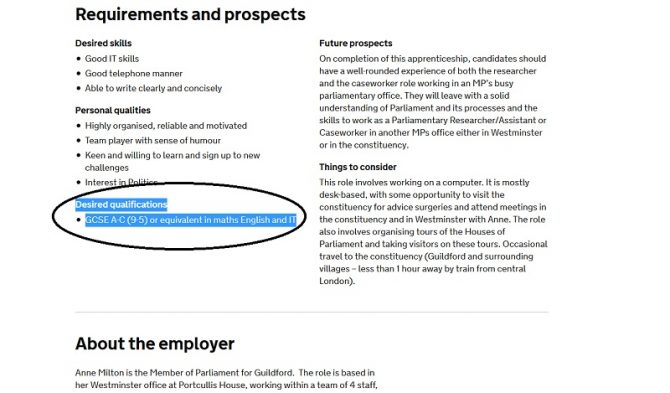Ofqual will allow T-level exams to be taken more than once throughout the assessment year – meaning students will not have to wait a whole year for retakes, after FE Week exposed sector leader fears.
The exams regulator has also binned the idea of introducing a “working towards” grade for learners who narrowly fail the new technical qualifications.
Ofqual made the U-turns known today when launching its further technical consultation for how it will regulate T-levels, the deadline of which is October 28.
The regulator had originally consulted on the idea to only allow assessments to be taken in the summer, thus forcing students who need to re-sit their exams to wait a whole year to do so.
FE Week reported last month that awarding organisations across the country were majorly alarmed by this and urged Ofqual to reconsider.
“Following feedback, we will amend our approach as set out in the consultation to require an awarding organisation to provide a minimum of one assessment series for the Core and the Occupational Specialisms; with the option for an additional assessment series, if appropriate,” Ofqual said today.
It added that it will allow “each assessment series to be used both for students sitting assessments for the first time and those retaking assessments”.
The regulator will “not specify when in the year these should take place”, it will be “for an awarding organisation to determine based on the requirements of the particular Technical Qualification and to explain its approach to assessment scheduling as part of its assessment strategy”.
There was also concern when the regulator proposed setting a requirement for occupational specialisms in T-levels to have a “working Towards” grade below pass.
“As there is felt to be limited value in this grade, we will not proceed with this proposal,” Ofqual has now said.
Other areas that have been changed include results and certification.
“Taking account of responses received, we will dis-apply our Conditions, meaning awarding organisations will not be required to issue certificates for the Technical Qualifications,” Ofqual said.
“Instead, certification will be for the overall T-level. However, a statement of achievement will be implemented for students who do not successfully pass all elements of the T-level, to ensure students are not disadvantaged and that their achievements are recognised.”
With regards to setting and marking assessments, the regulator will “require that the core knowledge and understanding elements are assessed by an examination and marked by the awarding organisation”.
“We would also expect these to be marked by the respective awarding organisation,” it added. “However, in exceptional circumstances, our rules will allow for centre marking of core skills assessments and Occupational Specialism assessments.”
Other proposals, including Ofqual’s approach on grading, reviews of marking and accreditation, will be “adopted largely as outlined in the consultation”.
Chief regulator Sally Collier said: “Our decisions, along with the government’s Invitation to Tender, mark a significant milestone in the delivery of T-levels.
“We look forward to continuing our collaboration with the Institute for Apprenticeships and Department for Education on this important initiative.”
“The responses we received to our policy consultation will help ensure these qualifications, and the T-levels of which they are part, are valid and robust, and meet the demands of the work place.”
Ofqual’s new T-levels consultation, which gives interested parties the chance to have their say on the detail of Ofqual’s rules, including drafts of the Conditions and Guidance, has been published alongside the DfE’s tender process for awarding organisations.
The first three T-level pathways set to start teaching in 2020 will be in digital (production, design and development), childcare and education, and construction (design, surveying and planning).





